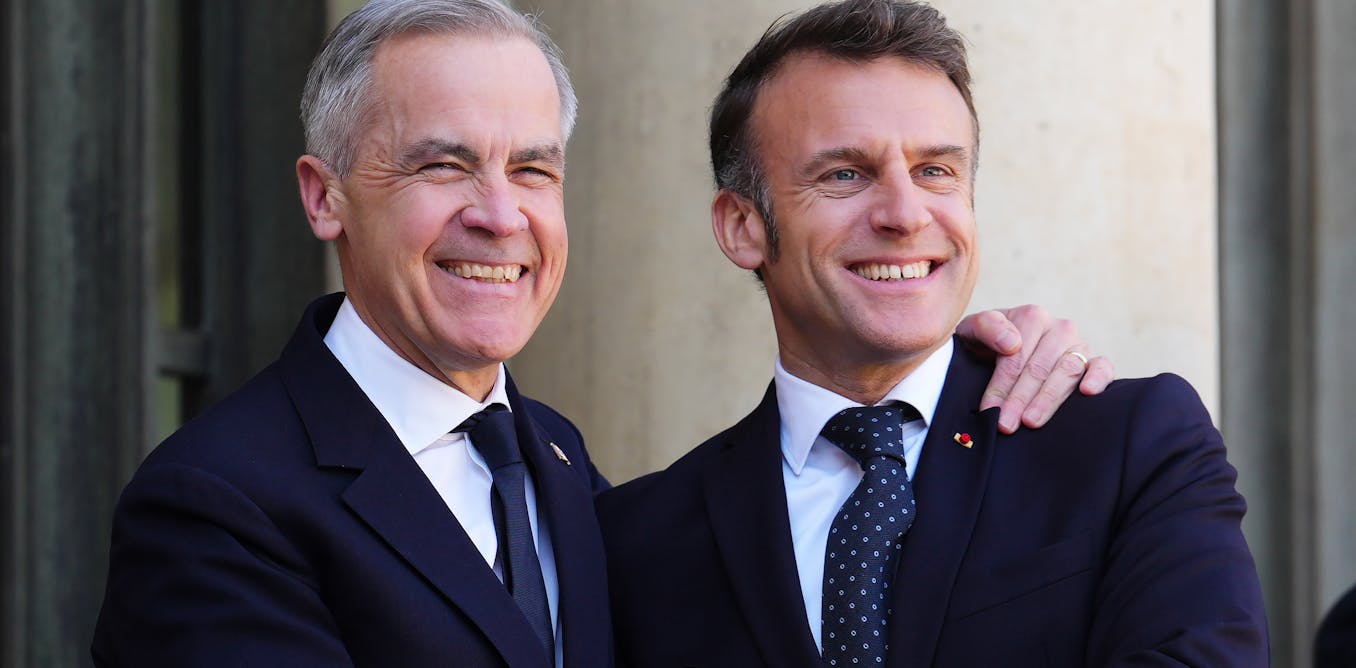cross-posted from: https://lemmy.sdf.org/post/32514869
The idea of Canada joining the European Union is ambitious, but it follows a certain logic.
The European Union is Canada’s second-largest trading partner after the U.S. In 2023, the combined trade in goods and services between Canada and the EU reached a value of CA$157.3 billion. The Comprehensive Economic and Trade Agreement (CETA), in force since 2017, has eliminated 98 per cent of customs duties between the two partners, which has promoted sustained growth in trade.
[…]
Further integration would offer full access to the European single market, harmonization of standards and synergies in key sectors: green technologies, artificial intelligence, pharmaceuticals and cybersecurity. It would also give Canada access to major European programs such as Horizon Europe, a research fund of 95.5 billion euros (nearly $148 billion in Canadian dollars).
Furthermore, Canada possesses natural resources that are crucial to the European energy transition: lithium, cobalt and nickel. Enhanced collaboration would ensure a secure and sustainable supply to Europe while promoting strategic industries on both sides of the Atlantic.
[…]
Canada meets the Copenhagen criteria (rule of law, democracy, market economy) and shares the fundamental values of the EU. The main obstacles would be of a technical or political nature: geographical distance, the need for Canada to align its laws and regulations with all European standards (the Community Acquis) and to adapt its agricultural supply management system to European internal market rules.
But Canada doesn’t necessarily need to aim for immediate formal membership. A more flexible path could be a close strategic partnership, inspired by the Norwegian or Swiss models but adapted to Canadian realities.
Such a partnership could include enhanced access to European markets, participation in joint research, defence or energy transition projects and increased co-ordination within multilateral institutions.
The objective would not be strictly economic, but political and symbolic: to affirm a common commitment to democracy, international co-operation and respect for the global legal order. A strategic turning point for Canada
[…]
A rapprochement with Europe could also help revitalize the democratic debate in Canada and strengthen both national cohesion around a common project and its ability to face future crises, whether economic, security or climate related.
The time has come to start this discussion, which should not be considered a dream, but an exercise in strategic foresight. Canada’s future may well be shaped, in part, on the other side of the Atlantic.



Very tough call. Another industrialized colonial block is JPN/ROK. Japan is the weakest in terms of US export dependence and debt levels, though its exports to China are almost as high as to US. https://www.campaignasia.com/article/how-japanese-car-brands-can-race-past-us-tariff-adversity/501910 suggests auto sector can pivot to Asia (China inclusive). Both Japan and ROK have Hydrogen FC (as does Canada) expertise, and China has electrolysis and first mover on a renewables base to make it cheap. Japan has “the advantage” of not yet being militarized, and could easily avoid the expense of US weapons purchases.
With that said, Japan is suppressing polling on its citizens (though 90% of JPN businesses saying Trump bad for business is not surprising) for how much they still love the US which is the natural prelude to rulership kissing the diaper that Trump says everyone wants to. They say original tariffs will cost $24B on their auto sector, but subsidies that high is much cheaper than weapons purchases, and lost investments in dead ender energy, and extortionist priced FFs from US, and most importantly isolation from Asia.
For Japan to choose the stupid insanity and corrupt subservience to US to avoid tariffs is also a fuck you to Canada. More independent relations with world is less costly. South Korea not only has more budget room than JPN to subsidize US trade, it is much easier for China and Russia to help best Korea unite, and it needs neutrality. The 2 problems with kissing Trump’s ass is that the US will ask you to kiss it longer, and China is by far the greatest military power in the region, and any countries that are useless to multilateral trade may as well be nuked. Israel can be threatened also to reign in its puppy, or solve middle east peace once and for all. Asia allying with China can also be allying with EU if it chooses to reciprocate.
All elected EU and Canadian politicians are allowed to rule and survive only with US blessing. Trump respects those who are more independent, but rest of colonies call them undemocratic autocrats. The generations of media programming that have made all of us value US values does create a problem for our rulers that validated that programming only to serve US empire fascism. This means EU can be unpredictable. They’re already warmongering harder against Russia. They too can choose global sustainability and cheaper energy instead of stupidity, but loyalties are programmed into their (and our) US corrupt tyrants.
So, if EU chooses multipolar order and global trade in defiance to US, then absolutely Canada should join EU. Their/our hatred of Russia seems incurable. Joining EU as it deepens its subservience to US empire by funding a war on Russia alone, while destroying its trade/industry to get more soldiers to go into the meat grinder is definitely a loser move, that won’t stop other wars in the world, and nuclear solutions to US sycophancy, whether or not it is back door deep state sycophancy that needs US weapons and energy with nothing traded in return.
There is a massive win to world from world uniting against US. Programming of people supporting their rulers threatens that outcome.